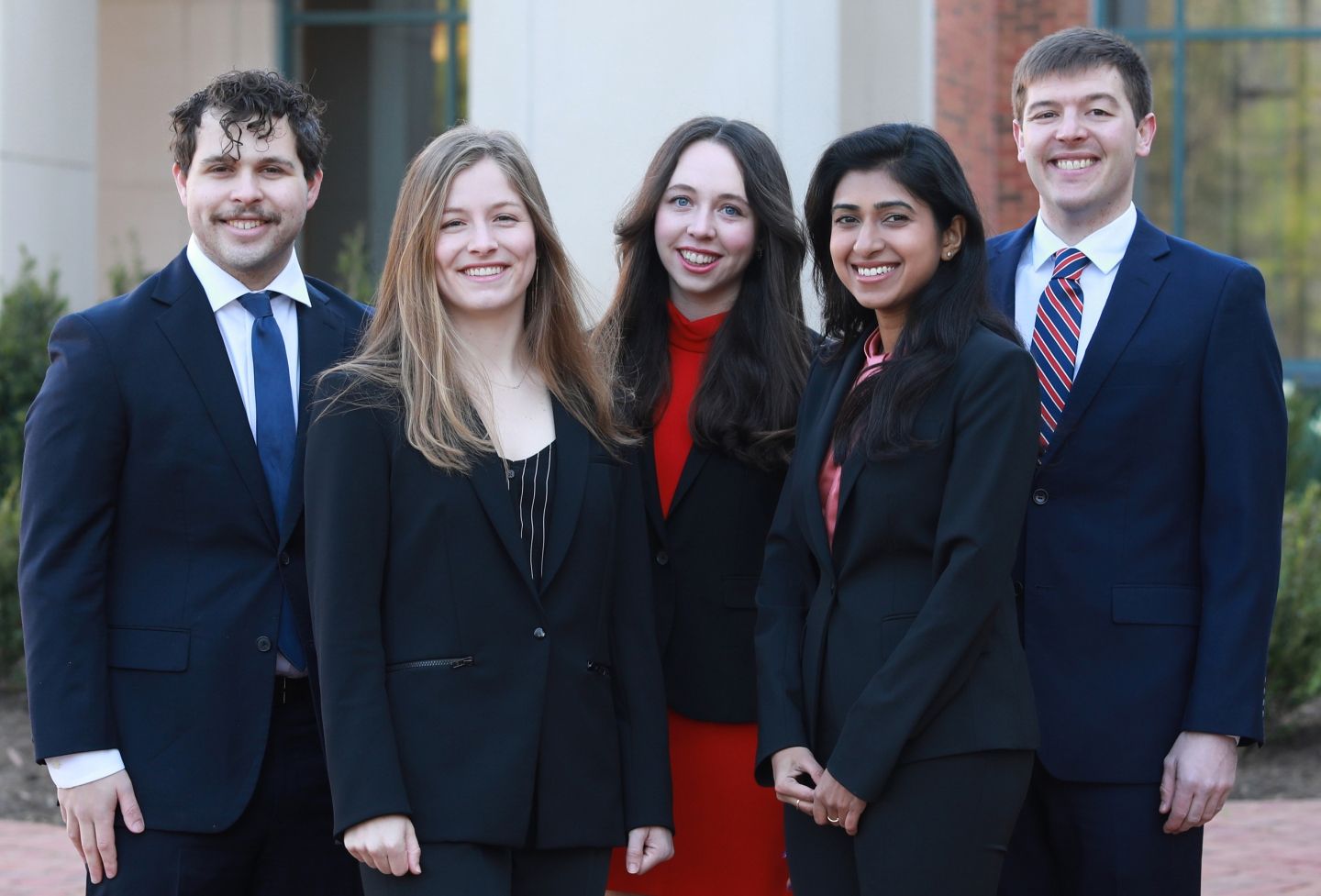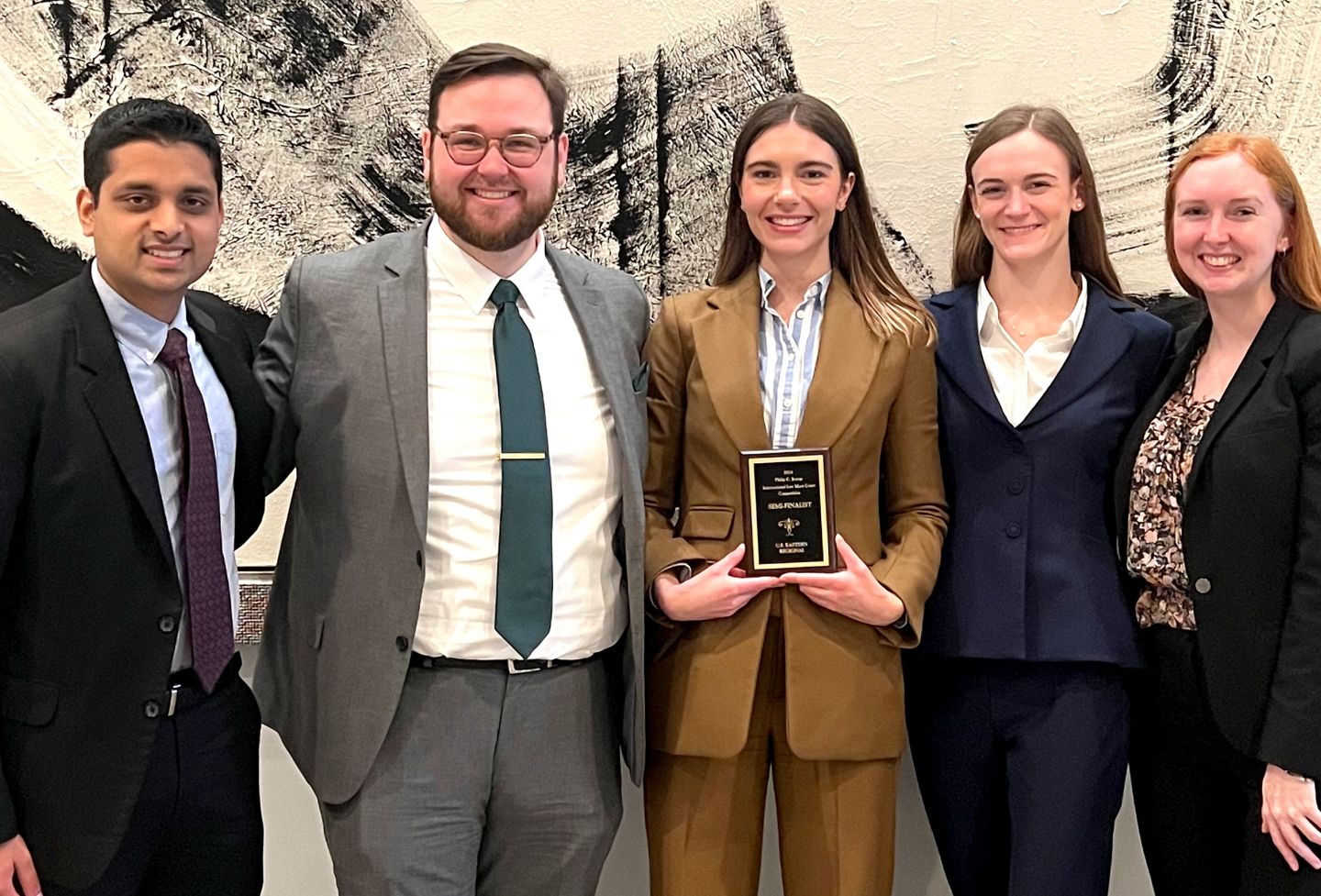Challenges Remain for Legislative Reform in Iraq, Spencer Says
Legislative reform efforts in Iraq have improved over the past few years, but challenges remain in critical areas such as human rights reporting and minority rights, an international lawyer told the Law School at a talk sponsored by the Human Rights Program on Tuesday.
 “It's getting better, but it’s fraught,” with challenges said William Spencer, executive director and founder of the Institute for International Law and Human Rights (IILHR).
“It's getting better, but it’s fraught,” with challenges said William Spencer, executive director and founder of the Institute for International Law and Human Rights (IILHR).
Spencer's firm, which works with Iraqi parliamentarians on rights-based legislative reform, was awarded a grant from the Human Rights Bureau of the U.S. State Department to provide legislative support for human rights and the rule of law in Iraq.
With a team of three experienced attorneys based in Baghdad, Spencer said his group was able to maintain a close working relationship with parliamentarians, giving them access and abilities other groups do not have.
“In Iraq, it's all about personal connections, and that is a real help for us,” he said.
Spencer said that there was significant demand for legislation in Iraq on a wide variety of issues, including minority groups’ refugees, constitutional implementation, electoral laws, private security laws and laws concerning nongovernmental organizations. IILHR is currently working on 35 to 40 pieces of specific legislation, generating everything from comments on drafts to research papers.
Since IILHR is saddled with such a heavy workload, it relies on several partners and clinics for assistance, including the Benjamin N. Cardozo School of Law and the University of Virginia's own International Human Rights Law Clinic. Spencer extended a special thanks to the University for its involvement in the drafting of three papers that are close to being passed in Iraq, focusing on education, NGOs and contractors.
“Your work has been absolutely essential and absolutely useful,” he said.
Nikki Stein, a LL.M. student who is working on Iraq's newly established Human Rights Commission through the clinic, says the experience has given her a window to apply her academic knowledge in the real world.
“I am able to work hands-on with an organization concerned with human rights work in practice, so I get to see a slice of how human rights law works beyond the academic debates we learn in class,” Stein said.
Speaking briefly about life in Iraq, Spencer said improvements on the ground allowed his organization to observe the parliamentary elections earlier this year and to enter villages previously designated as “red zones.” Their compound also no longer suffers sporadic mortar rounds.
“The situation is getting noticeably better,” he said.
But Iraq remains a challenging working environment. Spencer and his associates live in metal containers with a single bed and closet, with little time or space for anything except work. Choppy Internet connections, constant security checkpoints and unreliable phone service add to the frustration.
“You have to be very patient, otherwise it cumulatively drags you down,” he said.
Though there is much less violence in Iraq today, Spencer says the same unresolved problems have now shifted into the political arena. Iraqi minorities – mostly Christians, Yazidis, Sabeans and Jews – have fled their homes or the country due to a lack of security, forming a large part of the nearly five million Iraqis who have been uprooted by conflict as refugees or internally displaced persons (IDPs).
“In this current environment, minorities, refugees and IDPs are the most vulnerable,” he said.
While lawyers should focus on shaping Iraq's legislative future, Spencer argued that the most important challenge for human rights in Iraq was the absence of any systematic reporting. He said International NGOs are either grossly underfunded or too intimidated to conduct the necessary fieldwork, thereby making it harder for lawyers to make credible claims about areas of concern.
“The first obligation for all those promoting human rights is to hold perpetrators accountable,” he added.
Spencer said that while President Barack Obama's Iraq policy focusing on withdrawal, institution building and a regional approach was a good start, his proposals need further detail. While European countries have offered to help with institution building and more Arab governments have extended diplomatic recognition, Spencer said that a similar focus on institutions was made by the Bush administration but never pursued.
“I've heard this every six months or so, admittedly from the previous administration. The details need to be fleshed out,” he said.
Spencer has more than 20 years of professional experience in international diplomacy, human rights, democracy and international law, both in and out of government. He has worked as a senior political advisor at the OSCE Mission to Bosnia, a U.S. State Department career foreign service officer, delegate to the Rome Conference, and senior manager at a consulting firm called International Resources Corp..
While lawyers should focus on shaping Iraq's legislative future, Spencer argued that the most important challenge for human rights in Iraq was the absence of any systematic reporting. He said International NGOs are either grossly underfunded or too intimidated to conduct the necessary fieldwork, thereby making it harder for lawyers to make credible claims about areas of concern.
“The first obligation for all those promoting human rights is to hold perpetrators accountable,” he added.
Spencer said that while President Barack Obama's Iraq policy focusing on withdrawal, institution building and a regional approach was a good start, his proposals need further detail. While European countries have offered to help with institution building and more Arab governments have extended diplomatic recognition, Spencer said that a similar focus on institutions was made by the Bush administration but never pursued.
“I've heard this every six months or so, admittedly from the previous administration. The details need to be fleshed out,” he said.
Spencer has more than 20 years of professional experience in international diplomacy, human rights, democracy and international law, both in and out of government. He has worked as a senior political advisor at the OSCE Mission to Bosnia, a U.S. State Department career foreign service officer, delegate to the Rome Conference, and senior manager at a consulting firm called International Resources Corp..
Founded in 1819, the University of Virginia School of Law is the second-oldest continuously operating law school in the nation. Consistently ranked among the top law schools, Virginia is a world-renowned training ground for distinguished lawyers and public servants, instilling in them a commitment to leadership, integrity and community service.


